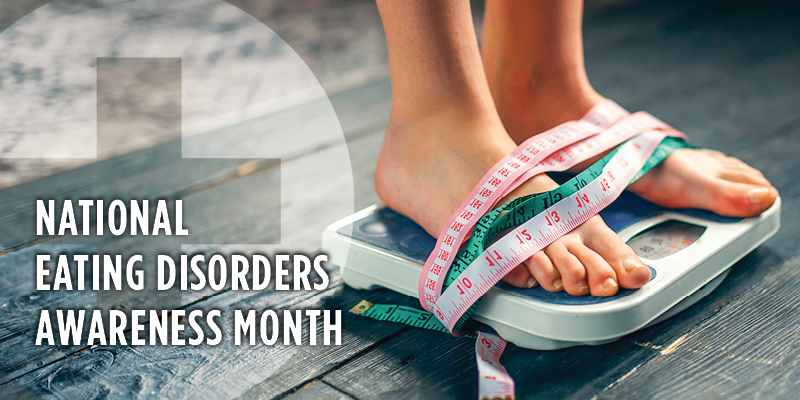What are eating disorders?
Eating disorders are a collection of psychiatric illnesses that also have severe physical impacts. Eating disorders often co-occur with other mental health conditions (like depression or anxiety) and have the highest mortality rate of all psychiatric disorders – both from the physical effects the various disorders have on the body and also from suicide.
While many people think of anorexia or bulimia when they think of an eating disorder, there are multiple types of disordered eating, and binge eating disorder is more than 3x more common than anorexia and bulimia combined.
While eating disorders are psychiatric disorders, they have a significant effect on the body since they directly impact the body’s absorption of nutrients. In addition to the mental impacts, the physical consequences can impact the entire body, including the heart, the kidney, the bones, and more. The severe health consequences can result in emergency room visits.
Because the conditions that cause an emergency room visit with eating disorders can appear to stem from different causes (for example, in an undiagnosed eating disorder, the cause of low blood pressure or unconsciousness may appear to be dehydration, instead of malnutrition), an ER visit caused by an underlying eating disorder can be dangerous.
Recent studies conducted at the University of Michigan Health System have found that nearly 16% of emergency room patients of all age ranges (14-65) showed indications of a previously undiagnosed eating disorder. It is estimated that only one-third of those with eating disorders will be diagnosed and receive treatment.
Know The Symptoms of Eating Disorders
Therefore, being aware of the potential for eating disorders, and especially when addressing health issues, is important. During National Eating Disorder Awareness Month, we encourage everyone to be aware of the symptoms of disordered eating, in order to seek treatment for themselves or others and prevent long-term negative health impacts, or even death. Some common symptoms of an eating disorder could include:
- Preoccupation or obsession with weight loss, control over food, weight, macronutrients, calories, or dieting
- Frequent dieting or fad dieting
- Obsession with/extreme concern with body size
- Refusal to eat certain foods or food categories
- Skipping meals or severe reduction in food portions
- Refusal to, or obvious discomfort with eating in the presence of others
- Extreme mood swings
- Noticeable or severe fluctuations in weight, up or down
- Gastrointestinal complaints (non-specific and without vomiting or diarrhea)
- Menstrual irregularities
- Dizziness, or fainting / passing out
- Difficulty concentrating
- New abnormal laboratory results, such as anemia, low hormone levels, low thyroid levels, low potassium, or low blood cell counts
- Complaining of feeling cold constantly, or cold, mottled hands
- The growth of fine hair on the body (lanugo)
- Muscle weakness
- Inability to sleep or get quality sleep
- Erosion of tooth enamel, discoloration of teeth, or new dental problems (such as cavities or tooth sensitivity)
- Dry skin, dry hair, brittle nails
- Frequent illness in a previously healthy person (from impaired immune system)
- Poor wound healing in a previously healthy person

Keep in mind that not all people will have all these symptoms, and that different disorders have different symptoms and behaviors. While more commonly diagnosed in young adulthood, eating disorders can occur in anyone, or re-emerge at any age. There is no sex, age, race, or class barrier for eating disorders and some people have reported that disordered thoughts and behaviors started much earlier than anyone noticed.
If you are concerned about yourself or a loved one, you can find more information on the website for NEDA, the National Eating Disorders Association. They also have a helpline you can call or text, 800-931-2237.

